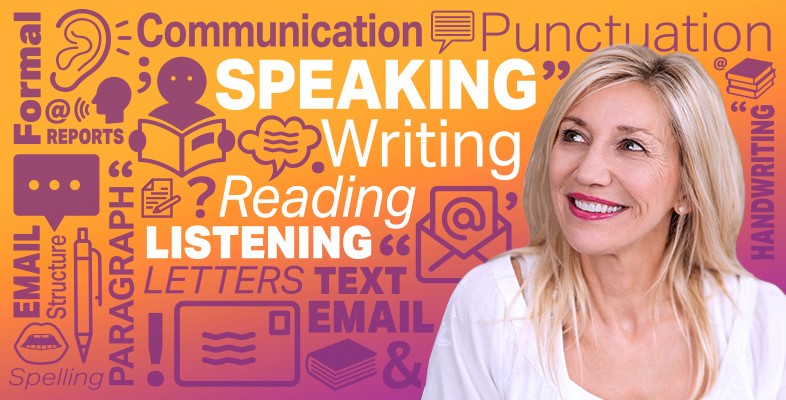End of course summary
Bringing it all together
Congratulations on completing Everyday English 1. We hope you have enjoyed the experience and now feel inspired to develop your English skills further.
Through this course you have developed your skills in the following areas:
- speaking clearly and confidently and at the appropriate volume and speed according to the situation
- understanding the importance of listening in communication, including active listening
- identifying when and why your ability to listen might be affected, for example through tiredness, anger or a lack of interest
- using body language to support positive and clear communication
- identifying formal and informal situations, and understanding how that affects the way you should communicate in both speaking and writing
- taking part in discussions, including asking and answering questions, taking turns, disagreeing and encouraging others to speak
- skimming a text in order to identify quickly whether it is something you should read
- scanning a text in order to search for information you are looking for
- reading, understanding and using different kinds of written texts, whether they are short, long, formal or informal
- telling the difference between facts and opinions
- identifying the purpose of different kinds of non-fiction texts, i.e. whether they aim to instruct, describe/explain, persuade or inform
- understanding how presentation and layout affect how easy a text is to read and how well it gets its message across
- planning, drafting and proofreading a text
- applying different structures to different types of text, including letters, emails, speeches and articles
- spelling, using certain kinds of punctuation and applying basic grammar rules
- an awareness of the importance of practising to improve all the above!
Next steps
You may now want to develop your everyday English skills further. If so, you will be pleased to hear that in March 2019, Everyday English 2 will be released on OpenLearn. Check back here [Tip: hold Ctrl and click a link to open it in a new tab. (Hide tip)] for further details. Everyday English 2 will give you the opportunity to look at some of the topics you’ve explored here in more detail, as well as new content.
If you would like to achieve a more formal qualification, please contact one of the centres listed below and explain that you have done this course and gained an OpenLearn badge. They’ll help you to find the best way to achieve the Level 1 Functional Skills English qualification or the Level 1 Essential Skills Wales Communication qualification, which will enhance your CV.
England
Tresham College (Part of The Bedford College Group), Windmill Avenue, Kettering, Northants NN15 6ER
01536 413123
Middlesbrough College, Dock St, Middlesbrough, TS2 1AD
01642 333333
West Herts College, Watford Campus, Hempstead Rd, Watford, WD17 3EZ
01923 812345
Wales
Coleg Cambria
Adult Learning Wales
https://www.adultlearning.wales/
Coleg Gwent
NPTC Group of Colleges
